Sue Lamoreaux – Managing Director at Solomon Page (Image credit: Salomon Page)
If you have been working in the fashion industry for a while, then you probably already know that the best executive recruiting firm is Solomon Page. And, if you’re lucky, you may have already met Sue Lamoreaux, one of the founding members of Solomon Page.
This week’s blog is dedicated to Sue, who is celebrating her 32nd year with SP. She has been placing candidates in roles ranging from Presidents, VP’s, Directors, Chief Commercial officers, Supply Chain, Marketing leads, Global Sourcing, ECommerce, Chief Digital, General Managers (GM’s), Product Development, Creative Directors, in addition to strategic mid-level positions across all disciplines in the fashion industry.
In 2022, and for the sixth year in a row, Forbes named Solomon Page as one of America’s Best Professional Recruiting firms.
I have personally known Sue for years, ever since I was chair of the Fashion Dept. at FIT. Sue regularly gave of her time critiquing, advising and guiding graduating students on their portfolios, resumes and interview preparation (she has been doing the same for Parsons for the past 10 years).
Recently, I had a chance to sit down with Sue to talk about the job market, current and future hiring trends in the fashion industry, and how the industry is utilizing University of Fashion for upskilling its personnel. Sue is a treasure trove of information, and I am thrilled and honored that she has agreed to share her knowledge with us. Here goes:
Francesca: What are the main jobs you recruit for in the fashion industry?
Sue: I recruit Design Directors, VP of Design, Creative Directors, Merchandising, Planning, Digital Marketing, Brand Marketing, Ecommerce, Technical Design, Sales, Global Sourcing /Production, Supply Chain/Operation. These would be the most frequent, but there are plenty of other titles and categories in Fashion that I place.
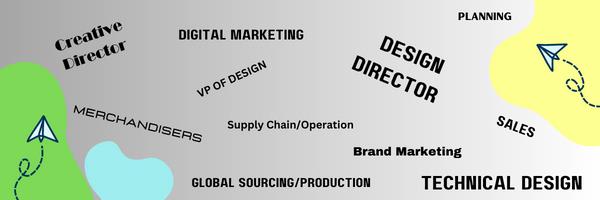
Francesca: Can you give salary ranges for each job?
Sue: This is a tricky question since the salaries vary from city/state, companies, associated benefits packages, a job’s specific responsibilities, if it’s hybrid or on site (salary adjustments post Covid). The hot topic right now is salary equity for those who are back in office versus those who are permitted to remain remote or hybrid (as commuting and tax situations can result in cost differences). I have found that many candidates are assuming that they will still have the option to be hybrid or remote when seeking a new job, but the majority of New York area companies have a return to office directive and new employees will especially have even less flexibility than most. It’s always best to ask upfront about specific related policies, since this is not a negotiating point for most companies.
Francesca: How important is going to a fashion school for someone looking for a job as a designer, a product developer, etc.?
Sue: Very important… Some companies even have a baseline requirement for a bachelor’s degree, or at least an associate’s degree, and there are many competing candidates who have master’s degrees that you will be competing with for candidate selection. But the relevant skills are still critical in your application.
I know many graduates of design schools who needed supplementary technical construction training, since many of the schools don’t spend enough time in the semester honing the craft. I always recommend taking that needed course with University of Fashion so you can be confident in your skills. Prospective employers expect you to know garment construction and specs before you start working and not to be learning/teaching on the job.

Francesca: Are there certain fashion schools that employers value most? And why?
Sue: There’s a wide variety… FIT, Parsons, CSM, SCAD, Otis, RISD, Kent, Marist College, University of Cincinnati, among others. Sometimes it’s the knowledge and endorsement of the faculty, or the hiring manager is an alumnus, or sometimes it has to do with the way the programs are structured, and they know the students have worked substantive internships all 4 years. Companies like when they can hire a graduate who has had work experience at a brand they know. Or even stay on part time during the school year, post working in the summer of junior year work experience. Brand experience matters much more than a study abroad program your junior year of college, if you are weighing out whether or not it’s worth it or will make a difference in your application.
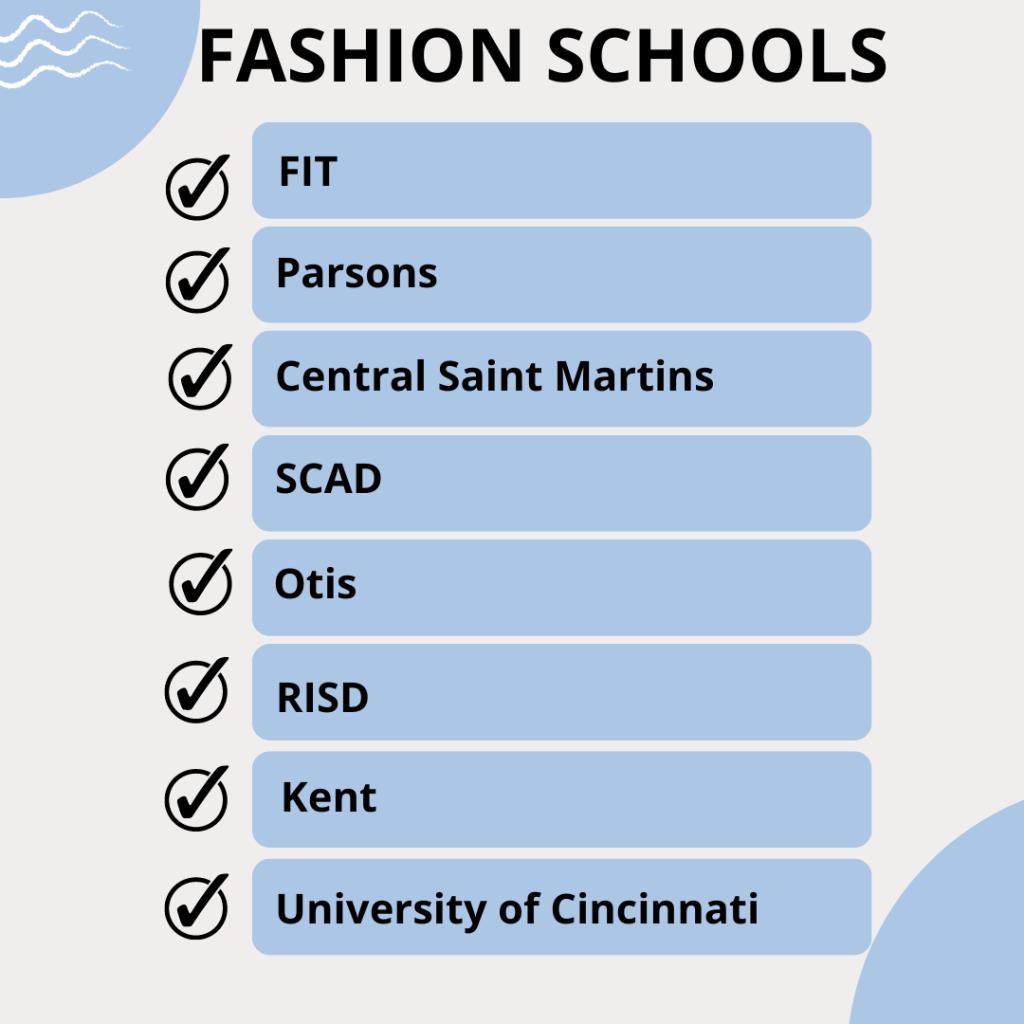
Francesca: For product development positions, do companies require hands on knowledge of on-the-table skills such as pattern making, sewing, and draping?
Sue: Yes, it’s very important for product development people to have foundational knowledge of garment construction. Many times, they are involved in the fit sessions and it’s important when they are looking at cost, fabric capabilities, what will work, and offering options/alternatives for better pricing etc. Sometimes companies forgo the designer and just have a product developer who could be creating private label for their accounts and are adapting and modifying garments for the client. They don’t always need to sketch, and many times have a great overseas partner to work with.
Francesca: How important is a portfolio in a job search?
Sue: A designer must have a portfolio; a pdf of work that is ready to go (and can be edited easily) and/or a website that is easy to access. Remember, many may be looking at your website from their phone, so be sure it’s easy to view from a mobile device.
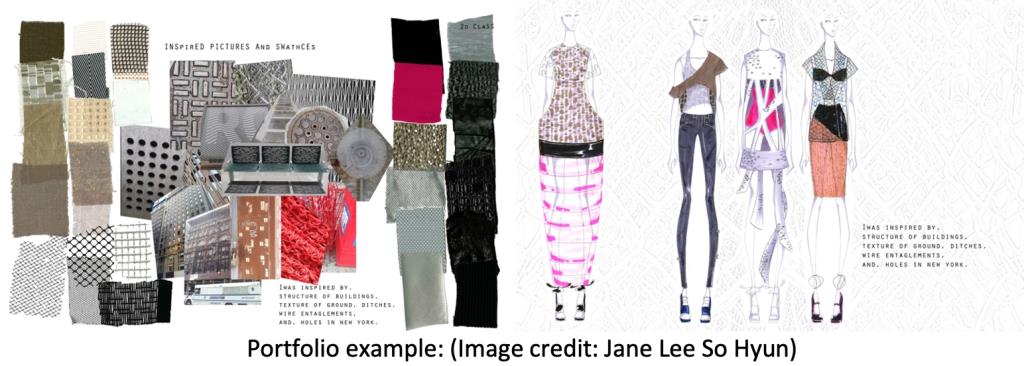
Francesca: Can you provide insight into what should be included in a portfolio for a design position?
Sue: It should be comprised of several components: Trend/aspirational boards showing images, color, fabric and details. Illustrations are important, flats and something technical to show you can execute a tech pack. Additionally, computer work, Photoshop, illustrator is a baseline requirement for everyone! As soon as your work is being viewed, it takes an experienced hiring manager seconds to determine if he/she connects with your style, your brand messaging, and your technical accuracy. If they don’t connect, you probably won’t be asked to interview.
View UoF’s 9-part series on how to plan a stellar portfolio:




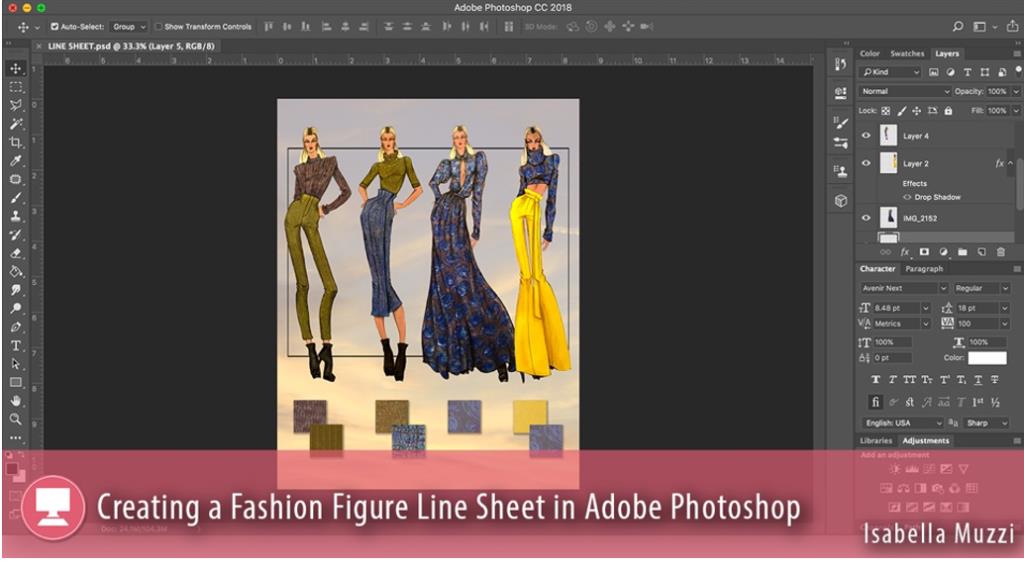
Francesca: How in demand is 3D design education in the industry?
Sue: Some companies have invested heavily in it and will only interview candidates who have been trained on it, since it’s expensive for them to train you and you will have a transition of time before you are proficient. So, if you have the opportunity to learn it, it’s in your best interest to learn it!
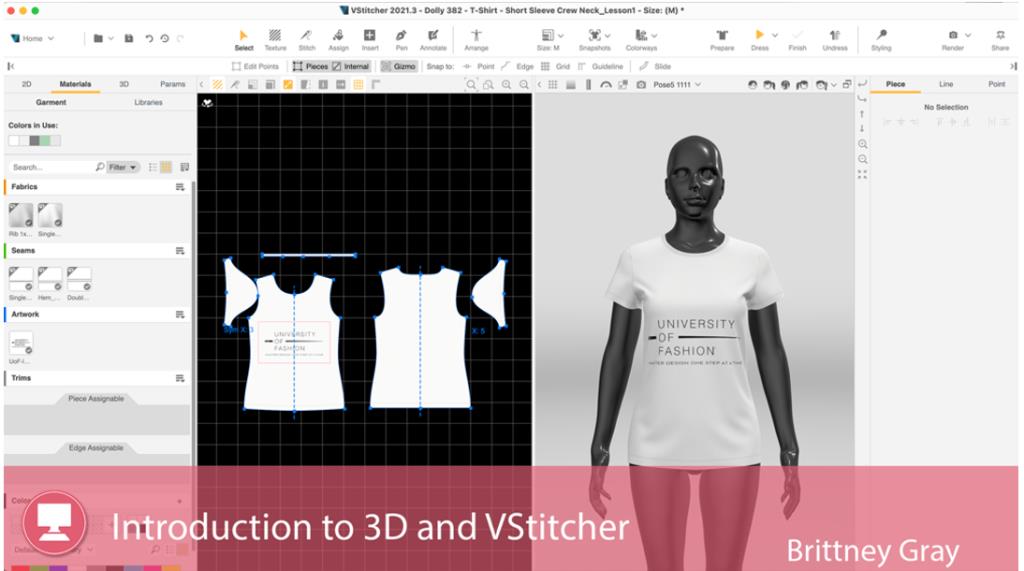
Francesca: Is agism a ’thing’ in the fashion industry?
Sue: Age and experience are not something to hide! Experienced people are the managers and leaders of companies. VP level, SVP, Chief, President, CEO’s all need experience in order to have earned that position. With that said, it is critical to stay up to date on key technology skills and things like industry trends and purchasing habits. Continuing to educate yourself ensures and protects your longevity in the industry.
Francesca: How hard is it for someone right out of school to get a job?
Sue: Right now, the hiring market is soft, but people who have work experience during college and have standout work in their portfolios, the right skills companies are in need of, and are seeking work in the growing disciplines, they are still getting jobs. If you don’t get hired full-time, see if you can get an entry level freelance job so you can earn some work experience and brand to document.
Francesca: What advice would you give someone who is thinking about a design job in the fashion industry?
Sue: Get your education at the best place you can, be sure you work during school and set your expectations realistically. You may not ultimately be a runway designer, but you could just as valuable as a technical design/patternmaker, who is the right hand to the Design Director. (i.e.: if the garment doesn’t fit, the customer isn’t buying it!).
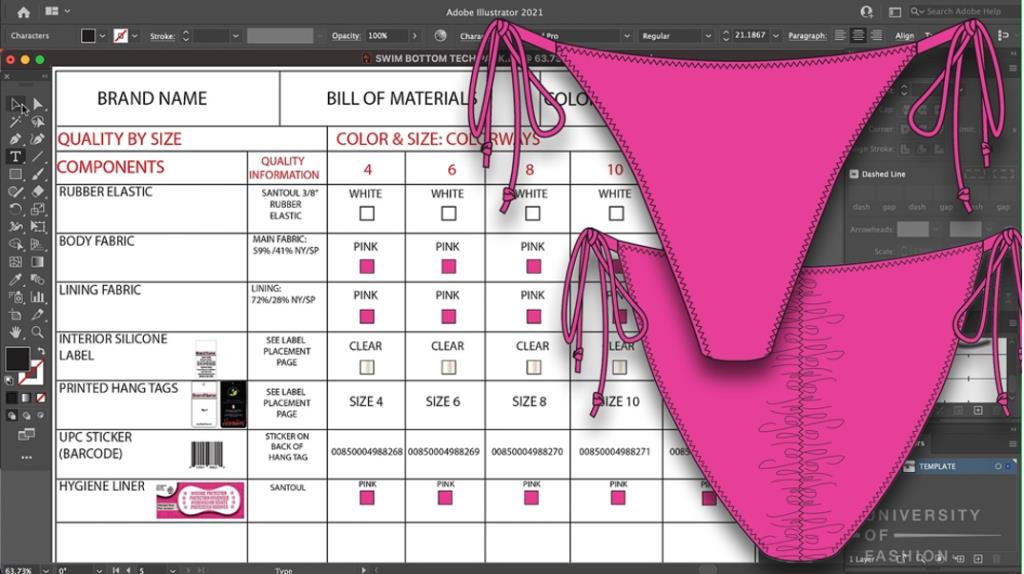
University of Fashion’s lesson: Creating a Swim Bottom Tech Pack in Illustrator
Francesca: How can working with a recruiter help me in my job search and where can I go about making those contacts?
Sue: Working with an experienced recruiter is a huge plus, but not every company will pay for the service. Many companies post jobs on their own website and LinkedIn. Entry level jobs are infrequently listed with recruiters and are addressed internally, generally. Sometimes I will get an entry level assignment because the internal recruiting has been unsuccessful, so always ask.
If you are able to work with a recruiter for a particular search the benefit will be that you will have guidance for interview preparation, portfolio recommendations, resume tips, salary negotiation assistance, etc. Honesty, it is very important in this partnership. Please know that if you have already submitted your resume to a company on your own, your recruiter will be blocked from representing you for that role.

Francesca: What are some things I should be sure to highlight in my resume, cover letter, and portfolio that employers look out for? And how can I make myself stand out to an employer when I am one of so many candidates applying for a role?
Sue: They look for relevant experience to their brand identity and the specific position they are recruiting for. Research the company and say something about them. Look at their job post. For example, if they want 3D experience and you don’t have it, you probably won’t get flagged to interview. Or if your portfolio work is so different than their aesthetic, you may not be selected.
Francesca: What advice would you give to someone going on an initial interview?
Sue: Remember, first interviews are still predominantly video. Be prepared for that. Make sure that you can upload everything smoothly and quickly while you are speaking. Be sure to load whatever video format the company is using to your computer well before the interview, so it’s ready to go (I have 5 different brands loaded on my computer, so don’t assume that everyone uses, Zoom) And of course the obvious, research the company!

Be sure to subscribe to the Solomon Page Blog, where you’ll find lots of free tips:
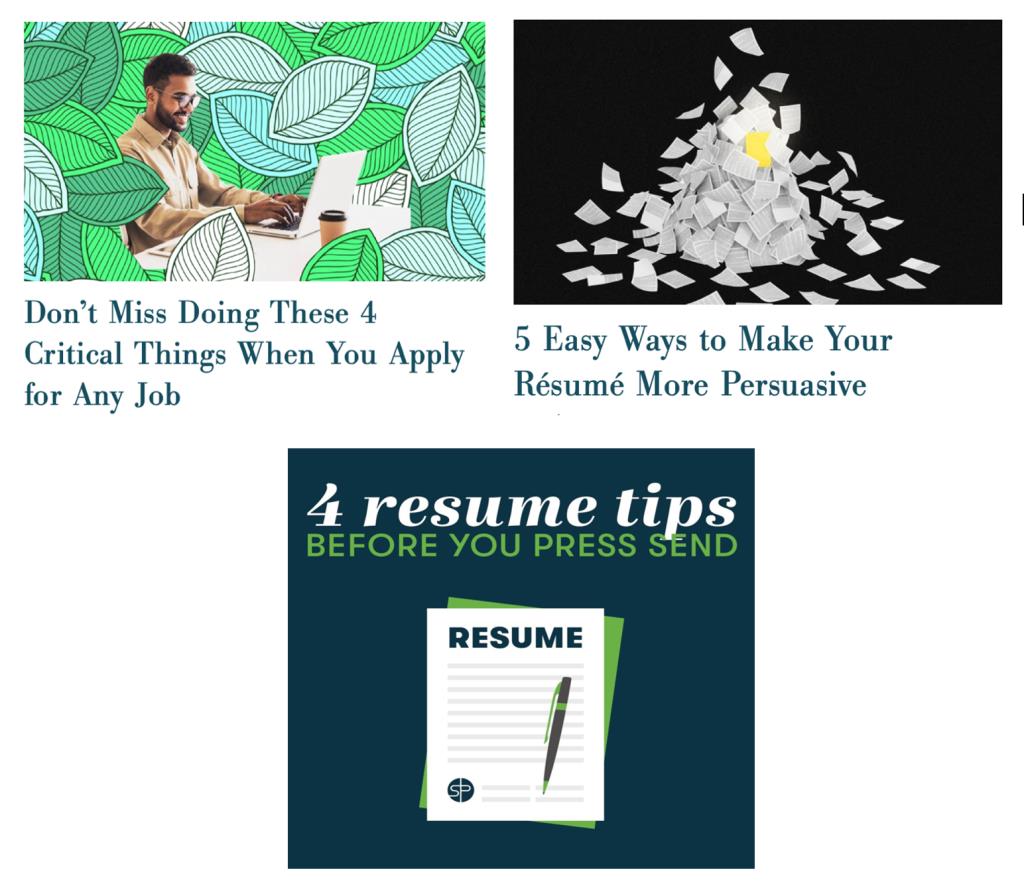
Francesca: What is your outlook for the future of employment within the fashion industry? Which sectors do you predict will grow and which do you think may decline?
Sue: Marketing is still the biggest department for fashion companies. Looking for work in this area and all of the subsets (i.e., brand marketing, digital marketing, performance marketing, social, ecommerce, communication, etc.) gives you a better chance of finding work. Some departments, such as sales, have shrunk (but not gone away) as more companies are direct-to-consumer (DTC), although there still is a need for good salespeople to be represented in a brick & mortar setting.
Many thanks to Sue for sharing her expertise with our UoF subscribers and followers. Here is Sue’s contact info should you want to thank her yourself:
Susan Lamoreaux
Salomon Page
P (212) 824-1580 x2582
C (908) 451-5537
in Connect with me
WEBSITE LINKEDIN FACEBOOK TWITTER INSTAGRAM
-------------------------------------
By: Francesca Sterlacci
Title: Fashion Industry’s Top Recruiter: Sue Lamoreaux
Sourced From: www.universityoffashion.com/blog/fashion-industrys-top-recruiter-sue-lamoreaux/
Published Date: Mon, 24 Jul 2023 18:43:15 +0000
Read More
Did you miss our previous article...
https://edmmusic.news/fashion-clothing/barbies-world-a-costume-designers-dream-come-true
 FestivalsMusicNew ReleasesArtistsFashion & ClothingVideosPrivacy PolicyTerms And Conditions
FestivalsMusicNew ReleasesArtistsFashion & ClothingVideosPrivacy PolicyTerms And Conditions
